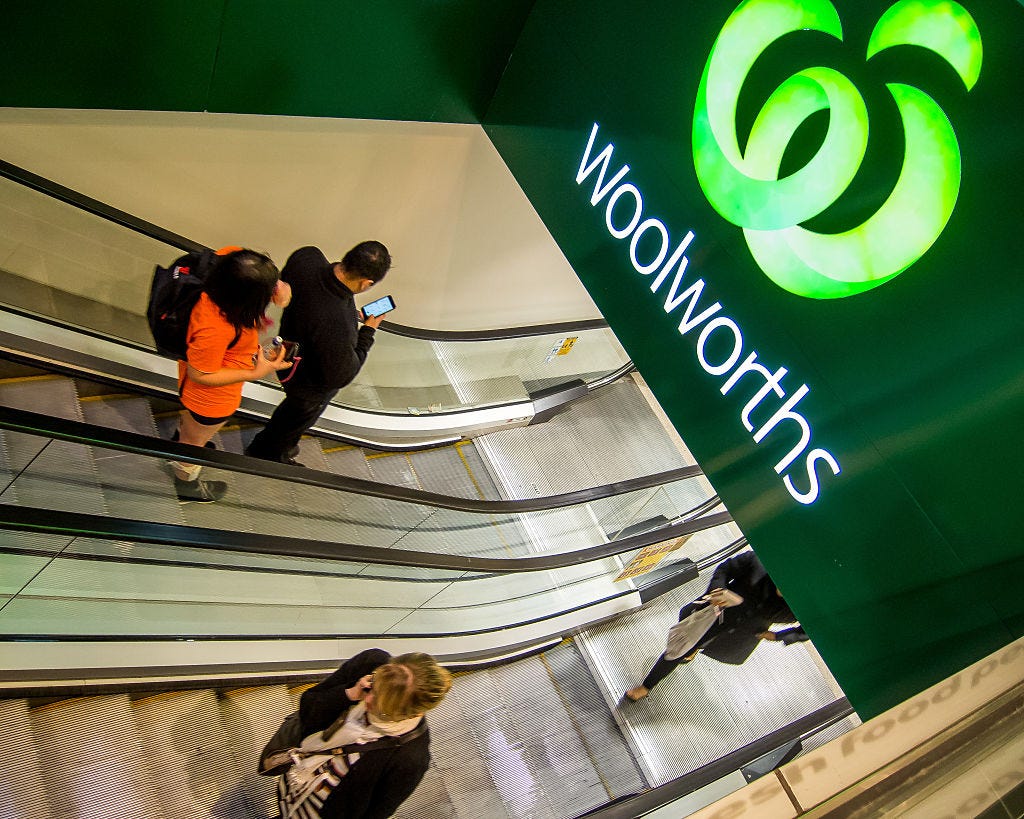
Kia ora. Long stories short, here’s my top six things to note in Aotearoa’s political economy around housing, climate and poverty on Tuesday, September 24:
Australia’s competition watchdog has launched legal action against Woolworths and Coles, alleging they both systematically misled customers by promising ‘every day low prices’, but only on products just after price increases.
In scoop of the day, Tova O’Brien reports for Stuff this morning that NZ First’s desire for new rail-enabled ferries is holding up a Coalition decision about replacing the Cook Strait ferries.
In deep-dive of the day, RNZ’s Farah Hancock reveals how a little-watched fight over a quarry in the Waikato could see Fast-Track consenting wipe out environment protections for private land under QE II covenants.
In solutions news, Dunedin City Council has launched a campaign to stop the downgrading of the new Dunedin hospital by a penny-pinching Government.
In quote of the day, an activist pledges to block J Swap’s quarrying plans.
In chart of the day, per-capita GDP has barely increased in the last four years.
(There is more detail, analysis and links to documents below the paywall fold and in the podcast above for paying subscribers. If we get over 100 likes we’ll open it up for public reading, listening and sharing.)
1. Did Woolworths do the same here?
ACCC alleges customers misled via ‘everyday low prices’ tactic
Adding to the allegations our supermarkets duopoly of Woolworths and Foodstuffs have inflated prices and profits at the expense of consumers, the Australian Competition and Consumer Commission (ACCC) yesterday alleged in Federal Court that both Woolworths Australia and its main competitor Coles Myer advertised ‘everyday low prices’ on hundreds of products at certain times, but only after big price hikes.
Here’s the core of the allegations from the ACCC:
The ACCC’s allegations relate to products sold by each of Woolworths and Coles at regular long-term prices which remained the same, excluding short-term specials, for at least six months and in many cases for at least a year.
The products were then subject to price rises of at least 15 per cent for brief periods, before being placed in Woolworths’ ‘Prices Dropped’ promotion and Coles’ ‘Down Down’ promotion, at prices lower than during the price spike but higher than, or the same as, the regular price that applied before the price spike.
“Following many years of marketing campaigns by Woolworths and Coles, Australian consumers have come to understand that the ‘Prices Dropped’ and ‘Down Down’ promotions relate to a sustained reduction in the regular prices of supermarket products. However, in the case of these products, we allege the new ‘Prices Dropped’ and ‘Down Down’ promotional prices were actually higher than, or the same as, the previous regular price,” ACCC Chair Gina Cass-Gottlieb said.
“We allege that each of Woolworths and Coles breached the Australian Consumer Law by making misleading claims about discounts, when the discounts were, in fact, illusory.”
“We also allege that in many cases both Woolworths and Coles had already planned to later place the products on a ‘Prices Dropped’ or ‘Down Down’ promotion before the price spike, and implemented the temporary price spike for the purpose of establishing a higher ‘was’ price,” Ms Cass-Gottlieb said.
The ACCC alleges the conduct involved 266 products for Woolworths at different times across 20 months, and 245 products for Coles at different times across 15 months. The representations were made on pricing tickets displayed to consumers in-store on supermarket shelves and online, usually with a ‘was’ price displayed showing what the price was during the short-term price spike and the date of that price. ACCC statement.
Woolworths faces fines of $5 million per breach and a total of up to a third of its turnover, which was A$67 billion in the last year.
Here’s an example, as detailed in The Conversation, of the misleading pricing allegations, along with the list of products subject to the allegations.
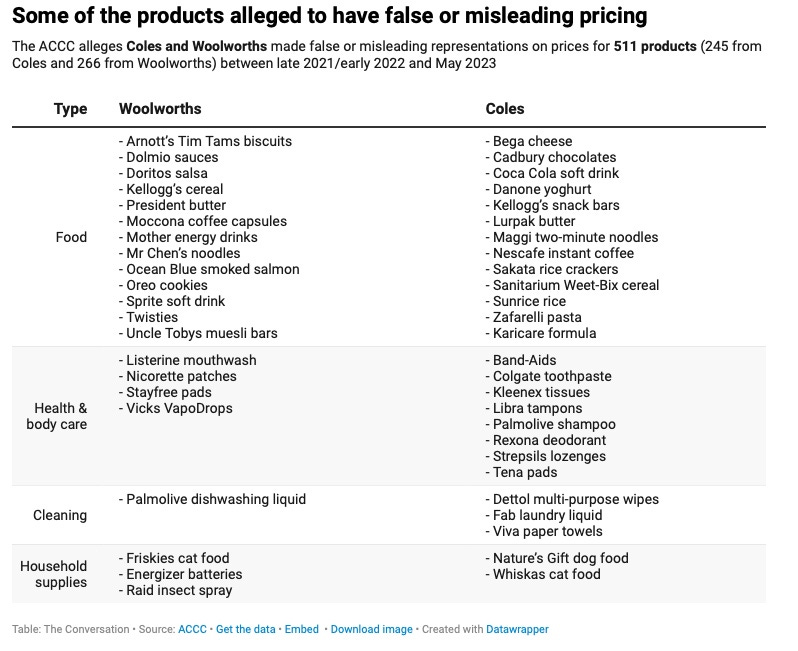
2. Scoop of the day
Politics & transport: Expensive impasse: National, ACT, NZ First disagree on replacing ferries. Stuff understands government parties disagree about replacing ferries, expensive impasse a major test for coalition. Stuff’s Tova O’Brien
3. Deep Dive of the day
RNZ’s Farah Hancock reported yesterday on a quarrying application that could eat away at a sacred mountain and wipe out the QE-II protections on private land. Here’s a sample, but I’d also recommend the video below:
Clouds cloak the top of the mountain, throwing a veil over a contentious quarry which has chewed away at the maunga since the 1950s.
"My biggest fear is the quarry is going to continue for another 300 years if they lift the QEII covenant," he says. "If the covenant was to be lifted, our maunga will disappear."
Standing in the way of the quarry eating away more of the South Waikato mountain is a QEII covenant which protects areas of privately owned land with significant environmental value. Forty-six hectares of native bush is protected by the covenant in perpetuity. But beneath the tree roots lies rock the quarrying company is desperate to mine.
The owner of the quarrying company, J Swap, has repeatedly tried to find ways around the covenant in order to expand the Matamata quarry. It's gone from asking nicely, to informing, to involvement in a proposal for a special law to be written to swap land, and to court several times. To date, each attempt has failed, with one court appeal still to be decided.
Its latest attempt is via the Fast-track Approvals bill, which has been touted as a "one-stop shop" to get infrastructure and development projects moving. The proposed legislation would sit over numerous other acts and would allow activities prohibited under the Resource Management Act or projects which have been rejected by courts to go ahead.
J Swap told MPs considering the bill at the select committee that land currently protected in perpetuity under a QEII covenant should be swept up in the changes the bill proposes.
Adopting this suggestion could have far-reaching implications. The QEII Act purposefully ensures the trust managing these protected parcels of land is an independent body, at arm's length from the government of the day. RNZ’s Farah Hancock
4. Solutions news
Honorable mentions:
Health 'We're reaching a crisis point': GPs calling for urgent overhaul of funding model RNZ
5. Quote of the day
Fighting for their maunga
“We will oppose any project that is approved for J Swap. Enough is enough." Local activist Te Ao o te Rangi Apaapa on J Swap’s plans to quarry maunga Te Weraiti via RNZ’s Farah Hancock in this deep-dive article and the video above.
6. Chart of the day
Who are we kidding?
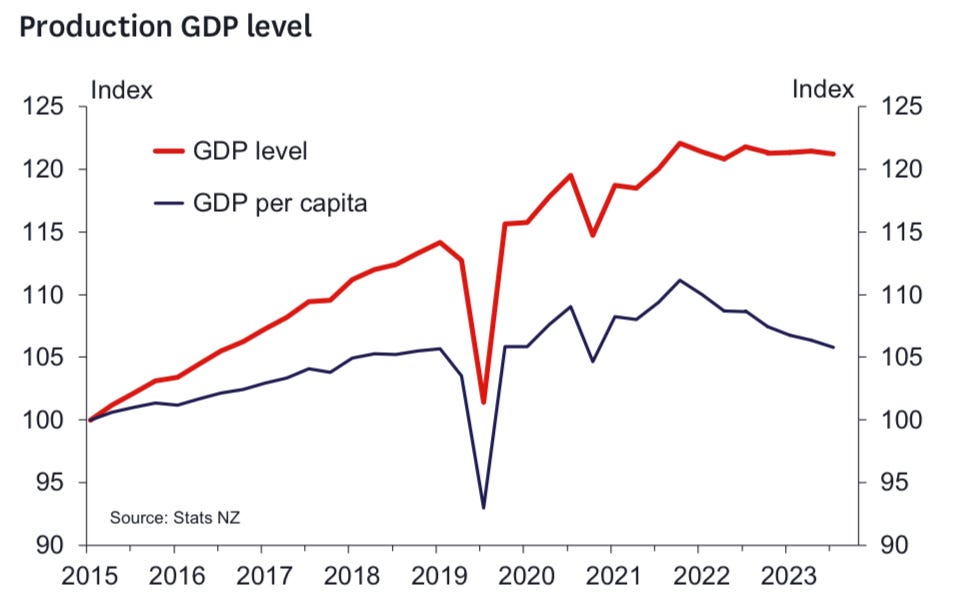
The Kākā’s Journal of Record for Tuesday, September 24
Work & politics: Public Service Minister Nicola Willis announced that agencies must "actively monitor" the impact and prevalence of public servants working from home under a revised guidance, which also specifies that working from home is "not an entitlement". The Public Service Association said the move is "out of step with modern workplaces", citing a study by 2Degrees suggesting that 51% of businesses believe hybrid working increases productivity. NZ Herald
Economy: Stats NZ reported a $2.2 billion monthly trade deficit for August 2024. Meat and dairy products led a 0.1% fall in goods exports in August 2024 as compared to August 2023, whereas fruit and crude oil exports rose 53% and 89% respectively. NZ Herald
Electricity: The Environmental Protection Authority announced resource consent approval for a Carterton solar farm to be constructed and operated by UK-based renewables developer Harmony Energy. The 240,000-panel farm covering roughly 156 hectares will supply electricity to the national grid.
Disasters: The Natural Hazards Commission announced it's developing a model to forecast the damage caused by ashfall during and after volcanic eruptions. The model can use engineering reports, satellite images, and crowd-sourced data including social media after an eruption.
Competition: The Australian Competition & Consumer Commission launched proceedings against Woolworths and Coles, alleging they illegally misled customers by raising prices on goods for brief periods before advertising them at a "discount" that was actually their old regular price or higher. The ACCC said it's also looking for Woolworths and Coles to receive community service orders to fund food charities. 1News
Work & migration: Manufacturing, engineering, and logistics peak body Hanga-Aro-Rau released an action plan on Pasifika workforce development, intending to partner with communities, businesses, and education providers to deliver employment and training initiatives that "improve outcomes for Pacific peoples." A progress report on the initiative will be released next year.
Cartoon of the day
‘How do I sleep at night? Quite well, thanks.’
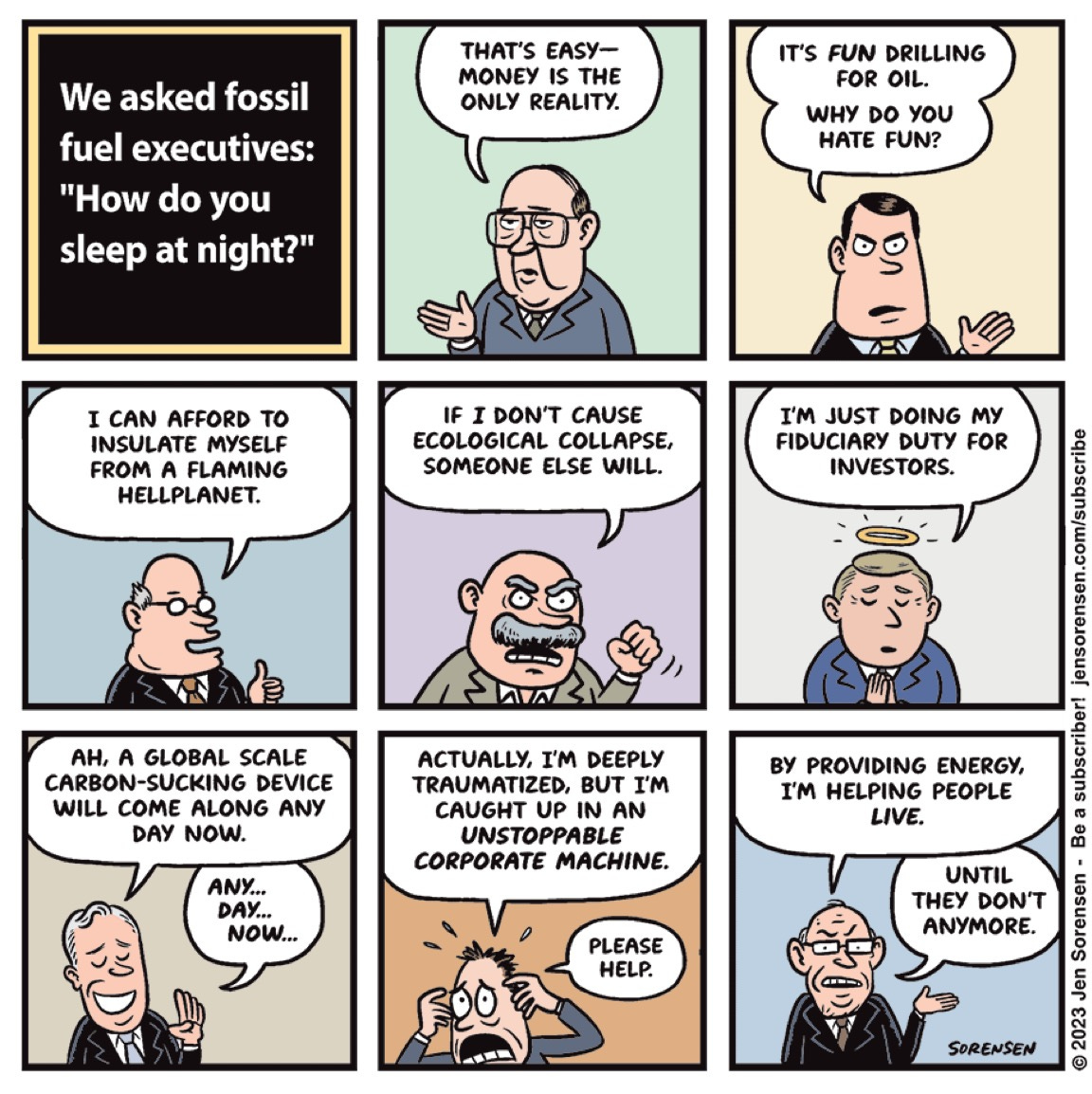
Timeline cleansing nature pic of the day
Chowing down
Ka kite ano
Bernard




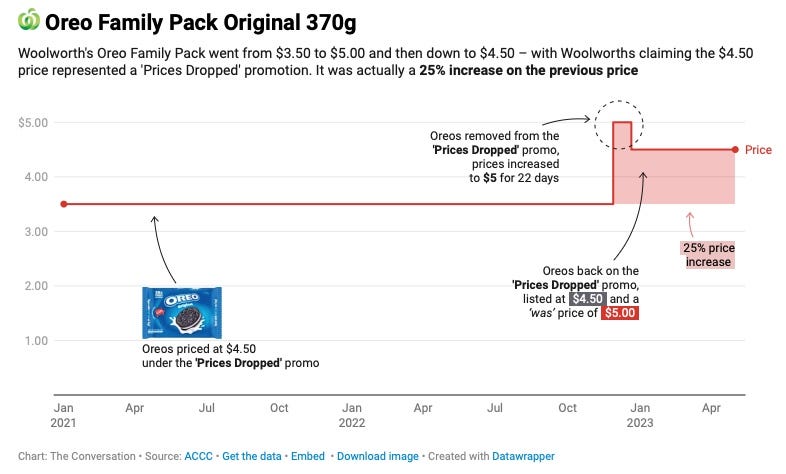












Share this post